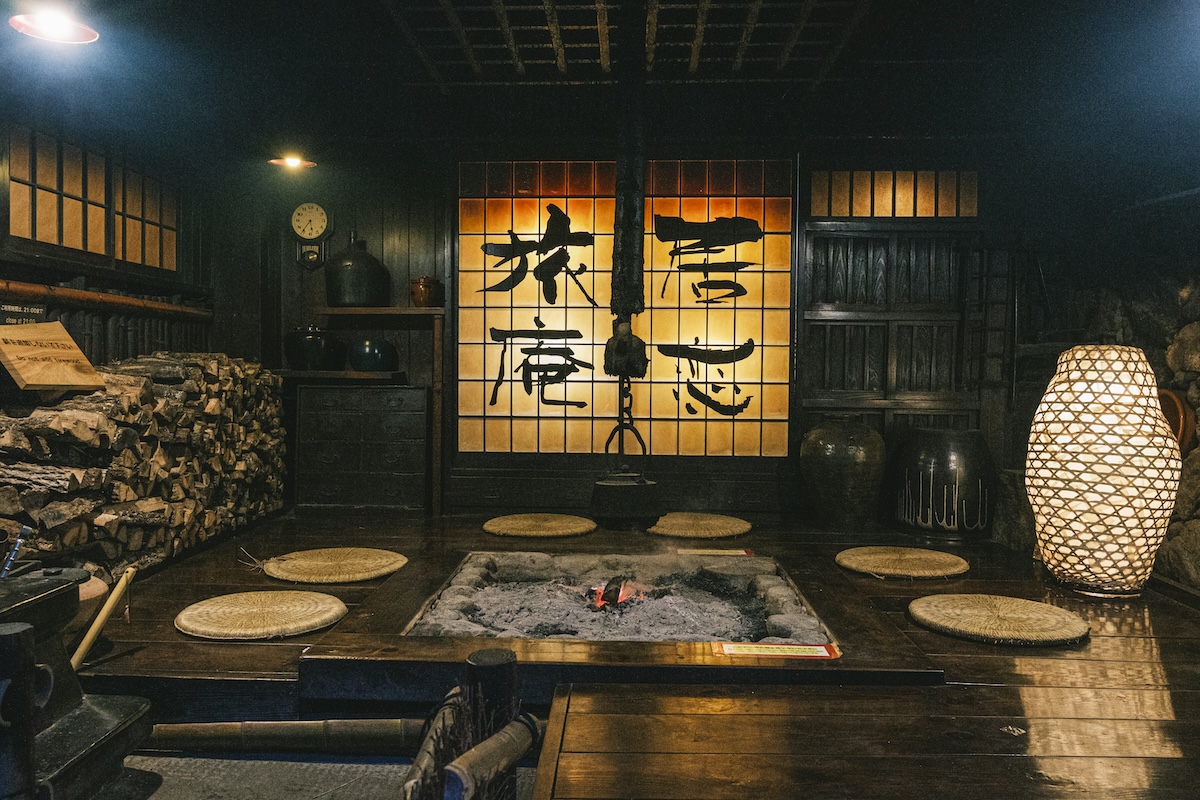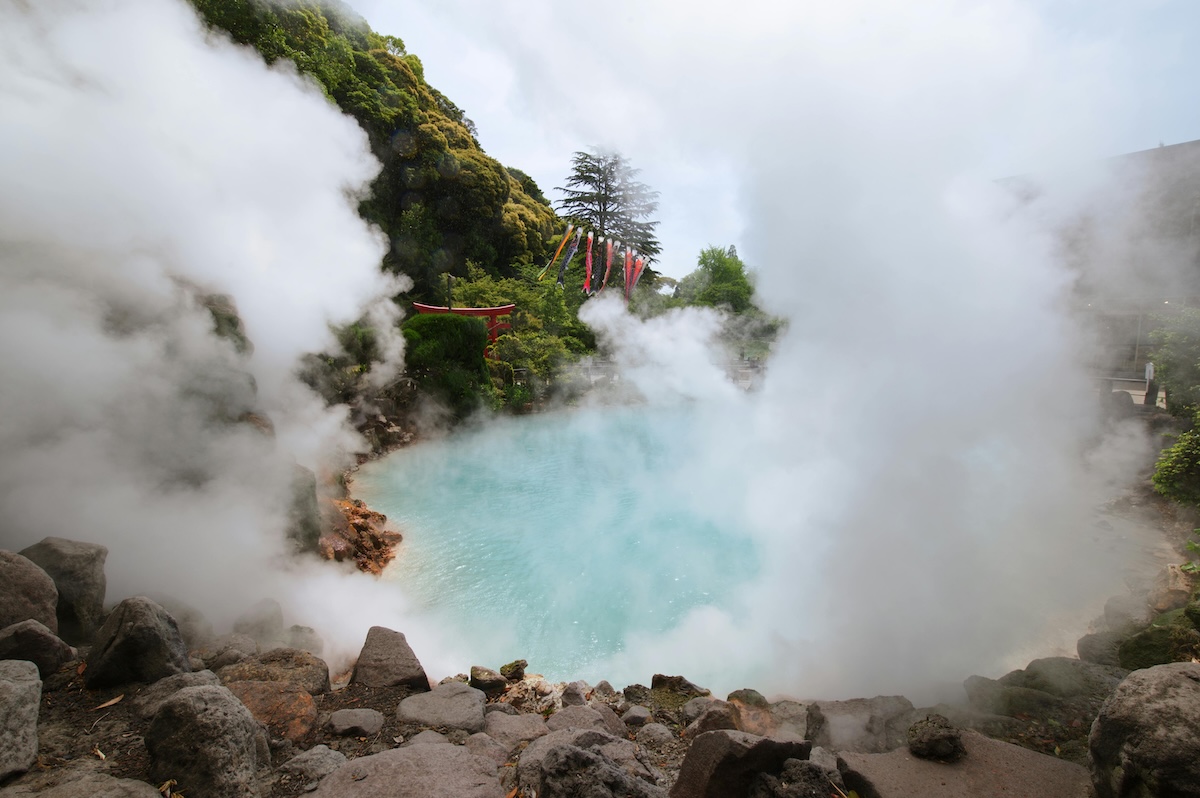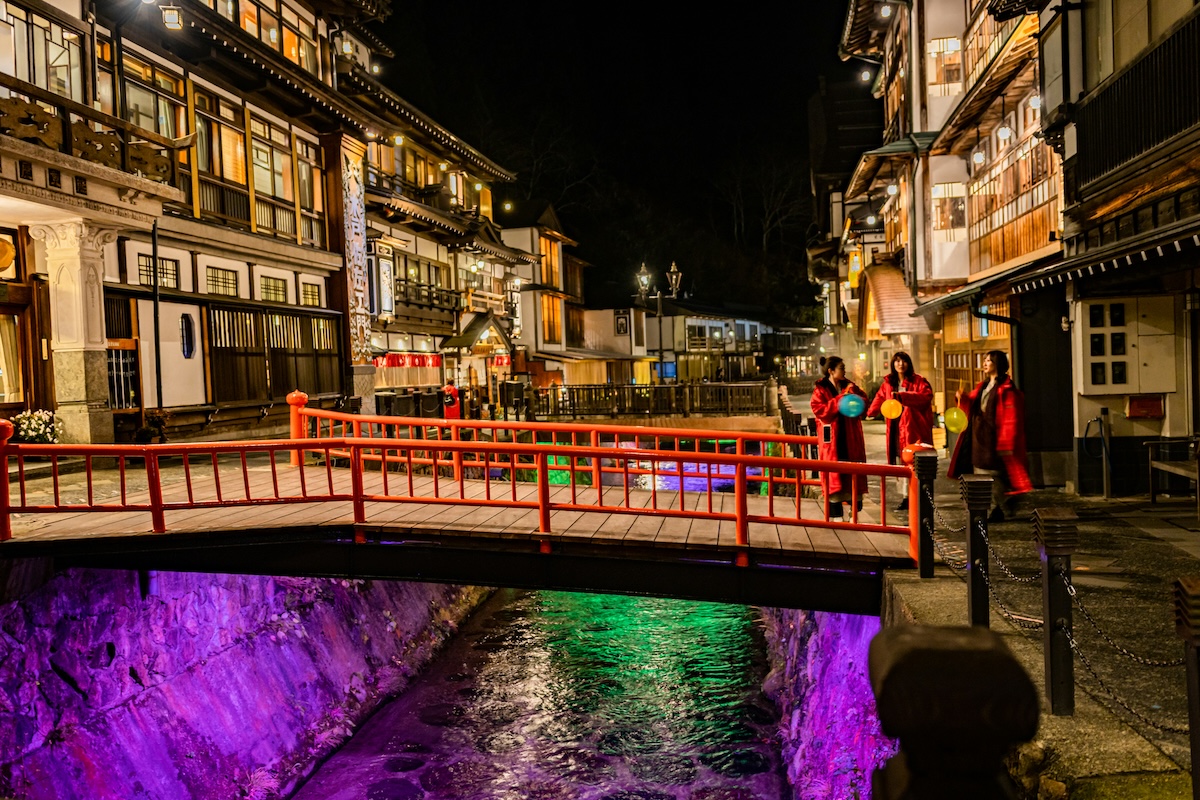
Want to Visit an Onsen in Japan? Here’s What to Know!
By: Mike Coleman
Skip to Section
You’ve planned your trip to Japan, marked all the must-see temples on your map, and practiced saying arigato. But there’s one experience that’s both exciting and slightly nerve-wracking for first-timers: visiting an onsen!
Soaking in these Japanese hot springs is a cultural ritual with rules and customs that might leave you feeling like a fish out of water if you’re unprepared. Let’s walk through the basics you need to know before taking the plunge!
What Is an Onsen?
An onsen is a natural hot spring bath filled with geothermally heated water that contains minerals from Japan’s volcanic activity. To officially qualify as an onsen, the water must be at least 25°C (77°F) and contain at least one of the designated minerals outlined by the Japanese Onsen Association.
Most onsens you’ll visit are developed bathing facilities built around these natural hot springs. They range from simple, rustic pools to luxury spa complexes with multiple baths at different temperatures.
Do You Need to be Naked in an Onsen?
Yes, you’ll be naked. Public onsens in Japan are separated by gender, and swimsuits are not allowed. This idea might feel strange if you come from a culture where public nudity isn’t the norm, but in Japan, it’s completely natural.
No one will be staring at you. Japanese bathing culture sees the onsen as a place for relaxation and health, not to check out other people’s bodies. After the first few minutes, you’ll find the experience surprisingly freeing.
Onsen Etiquette
Follow these basic steps to bathe like a local:
- Before entering the onsen area, remove your shoes at the entrance. Pay the fee (usually between 500-1500 yen for public baths). Then, head to your gender’s changing room.
- In the changing room, strip down completely and place your clothes and belongings in a locker or basket. Take only your small towel with you to the bathing area. Don’t bring your phone.
- Sit on the small stool provided at the washing stations and wash yourself thoroughly with soap and water. Rinse off completely—don’t bring soap residue into the bath. This cleaning step isn’t optional.
- When you enter the bath, do so slowly because it can be HOT! Your small towel stays out of the water. You can place it on your head or the edge of the bath. Keep your voice low, as onsens are for quiet relaxation. Don’t swim, splash, or dive.
- After bathing, you don’t need to rinse off, as the mineral water is good for your skin. Pat yourself dry with your towel before returning to the changing room.
The Two-Towel System
Most onsens operate with a two-towel system. The big towel stays in the changing room with your clothes. The small towel comes with you to the bathing area for washing and a modest covering while walking around. This towel should NEVER touch the bath water.
If the onsen doesn’t provide towels up front, you can usually rent them for a small fee or bring your own.
Can You Enter an Onsen With Tattoos?
Japan has a complicated relationship with tattoos. Traditionally associated with yakuza (Japanese organized crime), many onsens still ban people with tattoos.
This rule is changing gradually, especially in tourist areas, but checking in advance is smart. If you have tattoos, your options include looking for “tattoo-friendly” onsens, booking a private onsen (many ryokans offer these), covering small tattoos with waterproof bandages, or visiting during off-peak hours and asking politely if it’s okay.
Types of Onsens to Check Out
Japan offers a fantastic variety of hot springs. Rotenburo are outdoor baths, often with scenic mountain or ocean views. Konyoku are mixed-gender baths (becoming rare, but still exist in some traditional areas). Jigoku-mushi are “hell steaming” facilities where you can cook food using the hot spring steam. Soto-yu public baths in hot spring towns are frequently cheaper than hotel baths. And ashiyu are foot baths, perfect for a quick, clothed onsen experience.
Health Benefits and Warnings
Onsens are excellent for relaxation and offer health benefits thanks to their mineral content: sodium bicarbonate waters soften skin, sulfur waters help skin conditions, iron waters aid anemia, and acidic waters sterilize skin.
Not everyone should soak in an onsen, however. Skip the hot springs if you have heart problems, have very high or low blood pressure, are pregnant, are intoxicated, feel unwell, or have open wounds.
Healthy visitors should limit soaking to 15-20 minutes to avoid overheating.
Onsen Alternatives
Sentō are public baths using regular heated water instead of natural hot spring water. They follow the same bathing rituals. Many hotels and ryokans offer private baths you can reserve. Foot baths let you experience the hot spring waters without the nudity. Some newer establishments offer swimsuit areas, especially in Tokyo.
The Perfect Onsen Experience
For the full cultural experience, consider staying at a ryokan with its own onsen. Many offer half-board packages with incredible kaiseki (multi-course) meals and access to their baths day and night.
The best onsen towns include Hakone (near Tokyo—read our guide to visiting the baths at Hakone here!), Kusatsu, Beppu, and Noboribetsu, each with their own special water types and atmospheres.
Visiting a Japanese-style onsen might push you out of your comfort zone, but that’s part what makes travel so exciting! Follow the local customs and respect the traditions, and you’ll leave refreshed and with a deeper appreciation for this Japanese custom.
Happy Travels!
About the Author
Mike is a writer who researches and shares actionable advice around travel lifestyle, finance, and personal growth. He loves any trip where he can explore the great outdoors, and believes everyone should be able to experience travel for personal development and fulfillment. Read his other articles on Frayed Passport here.Featured image by Nichika Sakurai on Unsplash
Information published on this website and across our networks can change over time. Stories and recommendations reflect the subjective opinions of our writers. You should consult multiple sources to ensure you have the most current, safe, and correct details for your own research and plans.
Frayed Passport is a participant in the Amazon Associates Program, an affiliate advertising program designed to provide a means for sites to earn advertising fees by advertising and linking to Amazon.com. We also may share links to other affiliates and sponsors in articles across our website.






